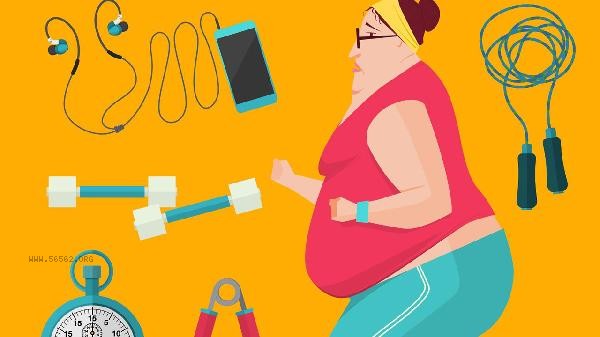The fat consumed during weight loss is mainly excreted through respiration and urine. The final products of fat metabolism are carbon dioxide and water, with carbon dioxide being excreted through respiration and water being excreted through bodily fluids such as sweat and urine. After fat is broken down into glycerol and fatty acids in the human body, it undergoes a series of oxidation reactions to produce energy. During this process, about 84% of fat is converted into carbon dioxide, which is excreted through lung respiration; The remaining 16% is converted into water and excreted through pathways such as the kidneys and skin. Breathing is the main pathway for fat excretion, which is also one of the reasons why aerobic exercise can effectively promote fat consumption. During exercise, the respiratory rate increases, the amount of carbon dioxide emitted increases, and the efficiency of fat metabolism improves accordingly. Although water excretion accounts for a relatively small proportion, drinking moderate amounts of water can maintain metabolic balance and avoid dehydration affecting weight loss. In rare cases, abnormal fat metabolism may occur due to individual differences or disease states. For example, patients with hypothyroidism have a slower rate of fat metabolism and a lower efficiency of carbon dioxide excretion; If the blood sugar of diabetes patients is not well controlled, the fat decomposition may produce ketone bodies, some of which are discharged through urine. This group of people need to adjust their weight loss plan under the guidance of a doctor to avoid metabolic disorders. Extreme dieting may lead to incomplete fat breakdown, resulting in the accumulation of intermediate metabolites, which can actually affect health.

Healthy weight loss requires a combination of aerobic exercise and dietary management. It is recommended to engage in moderate aerobic activity every week, maintain a regular schedule, and drink sufficient water. Avoid excessive reliance on local weight loss products or vigorous exercise, as fat metabolism is a systemic process and there is no method of targeted consumption of fat in specific areas. If the long-term weight loss effect is not good or symptoms such as dizziness and fatigue occur, timely medical examination should be conducted to check metabolic diseases.











Comments (0)
Leave a Comment
No comments yet
Be the first to share your thoughts!